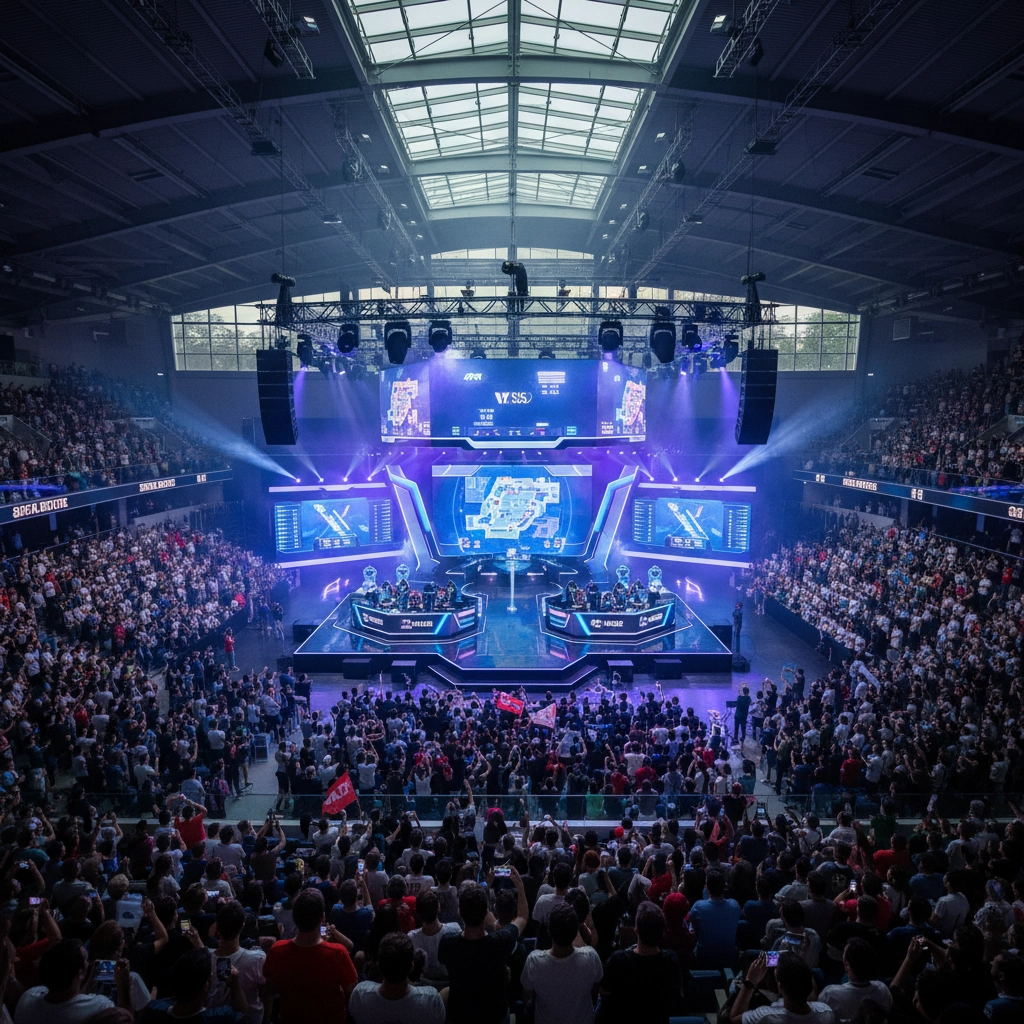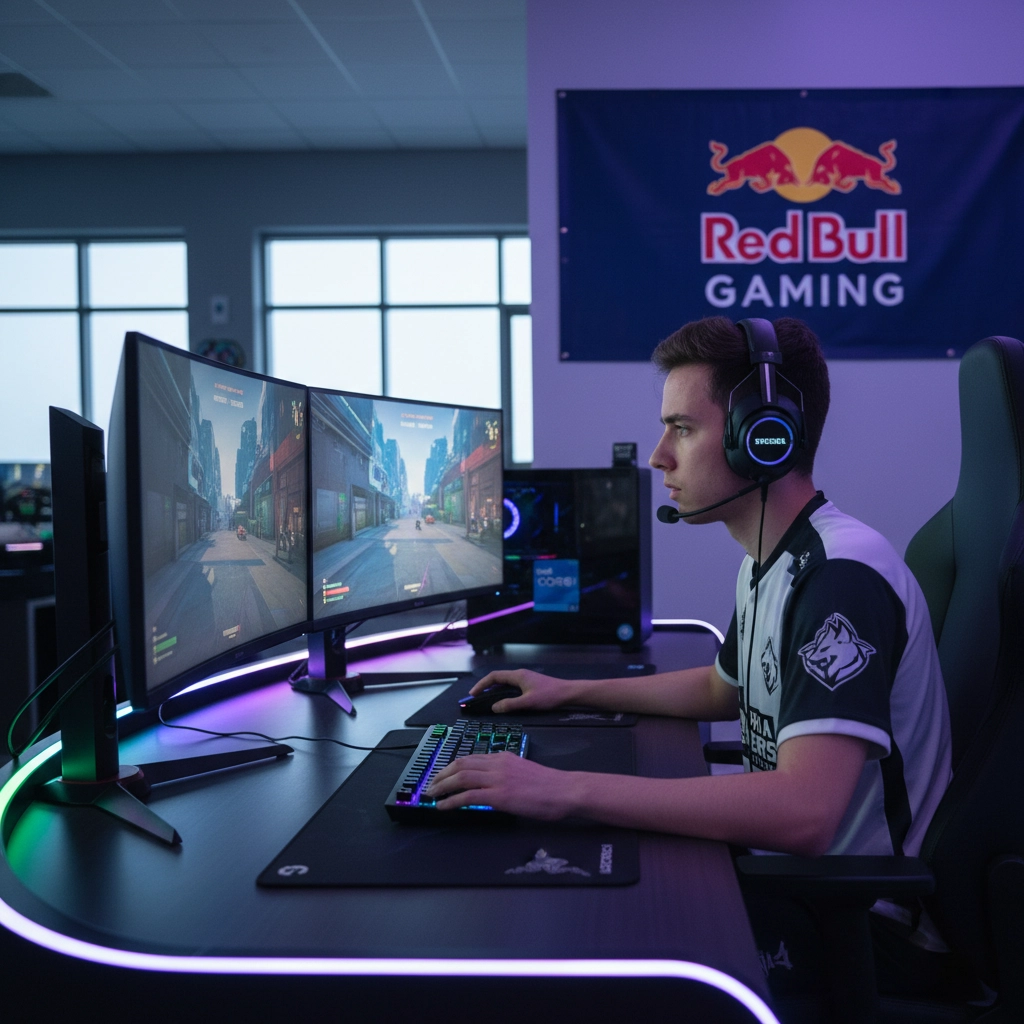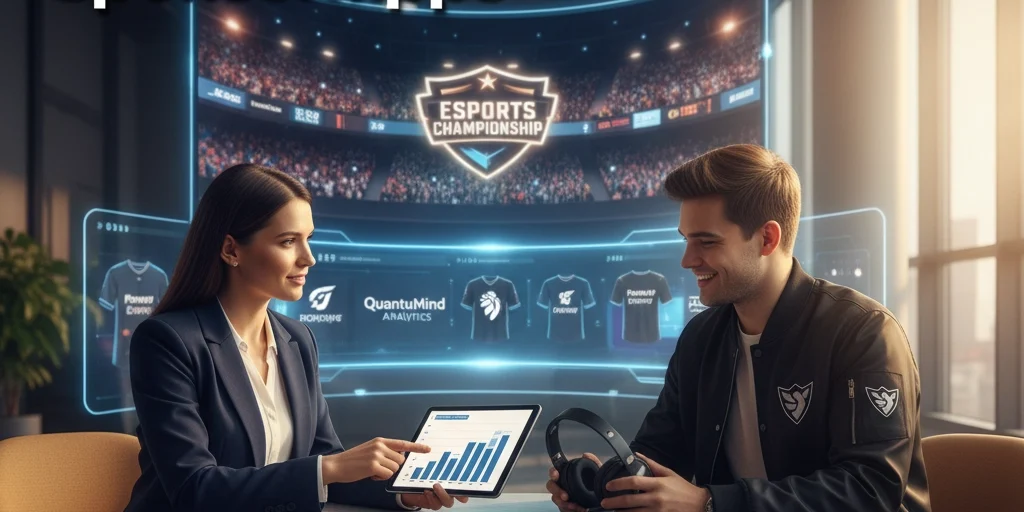The global esports industry has evolved from a niche hobby into a multi-billion-dollar ecosystem that captures the attention of over 540 million viewers worldwide. For brands seeking authentic connections with young, digitally-native consumers, esports sponsorships represent one of the most potent marketing opportunities available today. Unlike traditional advertising channels that interrupt consumer experiences, esports sponsorships integrate seamlessly into content that audiences actively seek and engage with.
This transformation has created unprecedented opportunities for businesses to achieve measurable marketing outcomes while building genuine community connections. When executed strategically, esports sponsorships deliver enhanced brand visibility, precise audience targeting, and conversion rates that consistently outperform conventional advertising methods.
Establishing Strategic Foundations for Success
The foundation of effective esports sponsorship begins with defining clear, measurable objectives that align with broader business goals. Brands must move beyond simple logo placement strategies and develop comprehensive approaches that consider audience preferences, cultural nuances, and authentic community integration.
Research indicates that successful esports sponsorships require deep understanding of gaming communities and their unique communication patterns. Unlike traditional sports audiences, esports viewers demonstrate higher levels of brand awareness and recall when sponsors demonstrate genuine investment in gaming culture rather than superficial promotional efforts.

The strategic planning phase should encompass audience analysis, competitive landscape assessment, and platform-specific considerations. Each gaming title attracts distinct demographic segments with varying engagement patterns, purchasing behaviors, and brand preferences. League of Legends tournaments, for instance, attract different audience profiles compared to Counter-Strike competitions, requiring tailored messaging approaches for maximum impact.
Core Strategies for Brand Maximization
Team and Influencer Partnership Development
Sponsoring professional esports teams or individual content creators establishes psychological connections that traditional advertising cannot replicate. When brands appear on team jerseys, gaming equipment, or streaming overlays, they become associated with the success and expertise that fans admire in their favorite players.
The emotional investment that esports fans maintain toward their preferred teams creates powerful brand association opportunities. Nielsen research demonstrates that 63% of esports fans are more inclined to purchase products from brands that sponsor their favorite teams, highlighting the direct commercial impact of strategic partnerships.
Collaborating with gaming influencers and professional players helps brands project innovative, forward-thinking images while accessing highly engaged audiences. These partnerships should emphasize shared values and authentic community support rather than purely transactional relationships.
Unique Brand Activation Opportunities
High audience engagement during live streams and tournaments creates opportunities for creative brand integration through exclusive in-game content, special events, and interactive experiences. Cross-promotional activities such as contests, limited-edition merchandise, and collaborative product offerings significantly increase emotional connections with target audiences.
Successful activations often involve creating exclusive content that provides value beyond traditional advertising messages. Red Bull's approach to esports exemplifies this strategy through their Campus Clutch program, which transforms college rivalries into global university esports championships, creating genuine community experiences around their brand presence.

Custom in-game skins, virtual currencies, and exclusive access opportunities represent particularly effective activation methods that provide tangible value to gaming communities while maintaining brand visibility throughout extended gameplay sessions.
Measurable Benefits and Return on Investment
The quantifiable nature of esports sponsorship distinguishes this channel from traditional marketing approaches. Digital platforms provide real-time data on audience engagement, viewership metrics, click-through rates, and direct conversion tracking, enabling continuous optimization and performance measurement.
Brands can monitor specific engagement metrics including chat mentions, social media interactions, website traffic spikes, and direct sales attributed to sponsorship activities. This data transparency allows for precise budget allocation and strategic adjustments based on actual performance rather than estimated outcomes.
Customer Acquisition and Retention Impact
Esports sponsorship serves as both customer acquisition and retention strategy through authentic community integration and shared value demonstration. When brands associate with events or teams sharing similar values, they establish emotional connections that influence long-term purchasing decisions.
The loyalty demonstrated by esports audiences translates into measurable business outcomes across multiple performance indicators. Brands that authentically support gaming communities often experience improved conversion rates, enhanced customer lifetime value, and increased market share within target demographic segments.

Platform Advantages and Audience Reach
Esports tournaments attract millions of concurrent viewers across multiple platforms including Twitch, YouTube Gaming, and traditional broadcast television for major events. Strategic brand placement through team partnerships, event sponsorships, or platform-specific activations generates massive visibility while maintaining authentic integration within gaming culture.
The highly engaged nature of esports audiences creates significant advantages over traditional media consumption patterns. Viewers actively interact with content through live chat, social media engagement, and extended viewing sessions that often exceed traditional television programming duration.
Major platforms provide sophisticated targeting capabilities that enable brands to reach specific demographic segments, geographic regions, and interest categories with precision that traditional advertising channels cannot match. This targeting accuracy reduces marketing waste while improving overall campaign effectiveness.
Implementation Best Practices and Success Examples
Successful esports campaigns require authentic integration into gaming community culture rather than superficial promotional approaches. BMW's #UnitedInRivalry campaign demonstrates effective implementation through partnerships with established teams like Fnatic and G2 Esports, creating genuine fan communities around entertaining, original content.
Coca-Cola's collaboration with Riot Games for League of Legends showcases comprehensive ecosystem integration as official sponsors while creating unique content including behind-the-scenes footage, player interviews, and competition highlights. These approaches demonstrate how brands can become valuable community contributors rather than external advertisers.
Intel's long-standing commitment to esports through the Intel Extreme Masters series exemplifies sustained community investment that builds brand authority and recognition over time. Their approach combines technological expertise with strategic event partnerships and authentic community engagement.

Technology Integration and Innovation Opportunities
The convergence of esports with emerging technologies creates additional opportunities for brand differentiation and audience engagement. Virtual reality experiences, augmented reality overlays, and blockchain-based fan engagement systems represent evolving areas where forward-thinking brands can establish competitive advantages.
Integration with streaming platforms' native features such as custom emotes, subscriber benefits, and interactive elements provides seamless brand presence that enhances rather than interrupts user experiences. These technological integrations often generate higher engagement rates compared to traditional advertising placements.
Future-Focused Strategic Considerations
The continued growth of mobile esports, expansion into emerging markets, and integration with mainstream entertainment present evolving opportunities for brand maximization. Organizations that establish authentic community presence today will benefit from enhanced brand recognition as esports audiences continue expanding globally.
Educational institutions increasingly recognize esports as legitimate competitive activities, creating opportunities for brands to engage with younger demographics through scholarship programs, facility partnerships, and academic collaborations. These initiatives demonstrate long-term community investment while building brand associations with excellence and achievement.
The intersection of esports with traditional sports organizations creates additional partnership opportunities as professional sports teams establish gaming divisions and cross-promotional events. Brands positioned within both ecosystems can leverage expanded audience reach and diversified content opportunities.
Strategic esports sponsorship represents a fundamental shift toward community-integrated marketing that prioritizes authentic value creation over interruptive promotional tactics. Organizations that embrace this approach while maintaining consistent measurement and optimization practices will establish sustainable competitive advantages within rapidly evolving digital entertainment landscapes.







